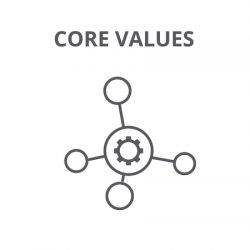March 5, 2018
Automation will lead to greater inequality rather than job losses
 The total level of wages associated with jobs that have the technical potential to be automated in the UK is £290 billion per year, which represents 33 percent of all wages and earnings from labour in the economy, according to a new report published by IPPR for the IPPR Commission on Economic Justice. The report further claims that low-wage jobs have more potential to be automated than high-wage jobs and so it’s not just automation’s impact on the number of jobs that need to be considered but the impact on inequality. If automation leads to lower average wages or working hours, or loss of jobs in aggregate, a significant amount of national income could be transferred from wages to profits. And while increased automation of activities will replace some workers and labour earnings, employment and wages will rise in other areas of the labour market due to higher output and productivity, offsetting some of the original £290 billion lost but increasing pay inequality.
The total level of wages associated with jobs that have the technical potential to be automated in the UK is £290 billion per year, which represents 33 percent of all wages and earnings from labour in the economy, according to a new report published by IPPR for the IPPR Commission on Economic Justice. The report further claims that low-wage jobs have more potential to be automated than high-wage jobs and so it’s not just automation’s impact on the number of jobs that need to be considered but the impact on inequality. If automation leads to lower average wages or working hours, or loss of jobs in aggregate, a significant amount of national income could be transferred from wages to profits. And while increased automation of activities will replace some workers and labour earnings, employment and wages will rise in other areas of the labour market due to higher output and productivity, offsetting some of the original £290 billion lost but increasing pay inequality.
















 In a workplace dominated by insecurity, gig work and intelligent machines we need to improve our understanding of their potential impact on health, safety and wellbeing claims a new report.
In a workplace dominated by insecurity, gig work and intelligent machines we need to improve our understanding of their potential impact on health, safety and wellbeing claims a new report. 
 The construction industry needs new talent and skills to help in the adoption of new technologies to meet the challenges of digital transformation. It must also become more diverse, including increasing the percentage of women in the industry. These are the recommendations of a new report from the World Economic Forum, developed in collaboration with The Boston Consulting Group (BCG), Shaping the Future of Construction: An Action Plan to solve the Industry’s Talent Gap. The report argues that the Infrastructure and Urban Development (IU) industry has failed to innovate as quickly as other sectors, resulting in stagnating productivity and negative effects on the economy, society and the environment. An ongoing industry-wide shortage of qualified workers is among the key reasons for this issue. It has undermined project management and execution, adversely affecting cost, timelines and quality. It also has impeded the adoption of new digital technologies, such as building information modelling (BIM), automated equipment and cloud-based collaboration tools, which could improve productivity. The report provides twelve key actions which needs to be implemented to close the structural talent gap of the construction industry.
The construction industry needs new talent and skills to help in the adoption of new technologies to meet the challenges of digital transformation. It must also become more diverse, including increasing the percentage of women in the industry. These are the recommendations of a new report from the World Economic Forum, developed in collaboration with The Boston Consulting Group (BCG), Shaping the Future of Construction: An Action Plan to solve the Industry’s Talent Gap. The report argues that the Infrastructure and Urban Development (IU) industry has failed to innovate as quickly as other sectors, resulting in stagnating productivity and negative effects on the economy, society and the environment. An ongoing industry-wide shortage of qualified workers is among the key reasons for this issue. It has undermined project management and execution, adversely affecting cost, timelines and quality. It also has impeded the adoption of new digital technologies, such as building information modelling (BIM), automated equipment and cloud-based collaboration tools, which could improve productivity. The report provides twelve key actions which needs to be implemented to close the structural talent gap of the construction industry.




 Most people who work in HR now recognise how essential technology is for delivering more strategic value to their organisation, but a new report suggests that HR teams are not prepared to meet the
Most people who work in HR now recognise how essential technology is for delivering more strategic value to their organisation, but a new report suggests that HR teams are not prepared to meet the 


 Over half of UK workers (53 percent) say that the standard of technology is a key consideration for accepting a new job role and more than 1 in 3 (37 percent) would decline a job based on poor hardware alone, claims a new survey. The survey of over 2,000 British adults carried out by gadgets and technology e-tailer, LaptopsDirect.co.uk found that having the latest technology was valued more than other office perks, such as flexible working (45 percent), the working environment/decor (39 percent) and staff discounts (33 percent). Nearly a quarter of respondents (74 percent) overall, believe technology makes them more productive at work, with workers in marketing valuing technology the highest, with 84 percent of the votes, followed by those in creative and photographic (81 percent), information and communications (78 percent), professional services (73 percent) and education (71 percent).
Over half of UK workers (53 percent) say that the standard of technology is a key consideration for accepting a new job role and more than 1 in 3 (37 percent) would decline a job based on poor hardware alone, claims a new survey. The survey of over 2,000 British adults carried out by gadgets and technology e-tailer, LaptopsDirect.co.uk found that having the latest technology was valued more than other office perks, such as flexible working (45 percent), the working environment/decor (39 percent) and staff discounts (33 percent). Nearly a quarter of respondents (74 percent) overall, believe technology makes them more productive at work, with workers in marketing valuing technology the highest, with 84 percent of the votes, followed by those in creative and photographic (81 percent), information and communications (78 percent), professional services (73 percent) and education (71 percent).
















